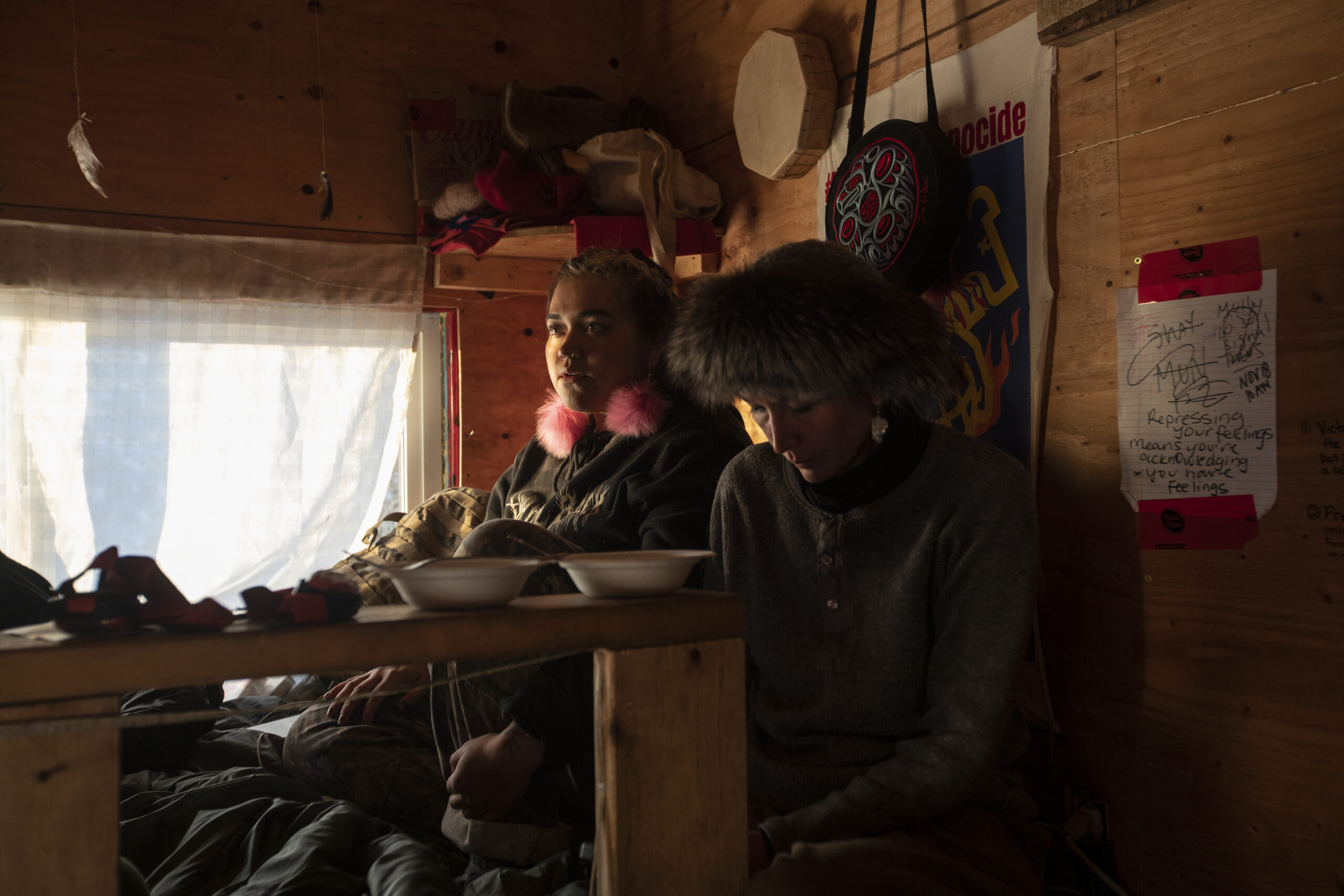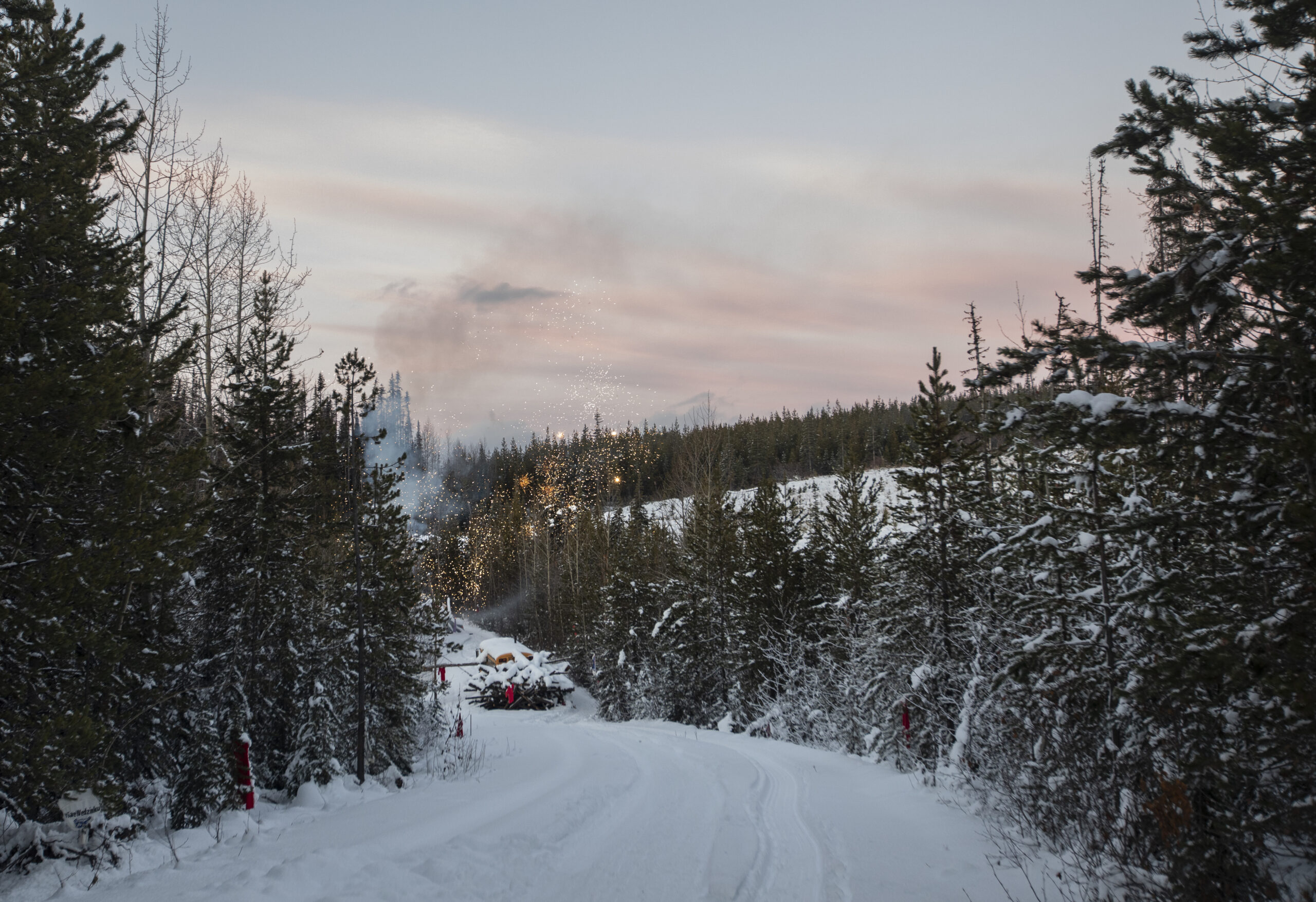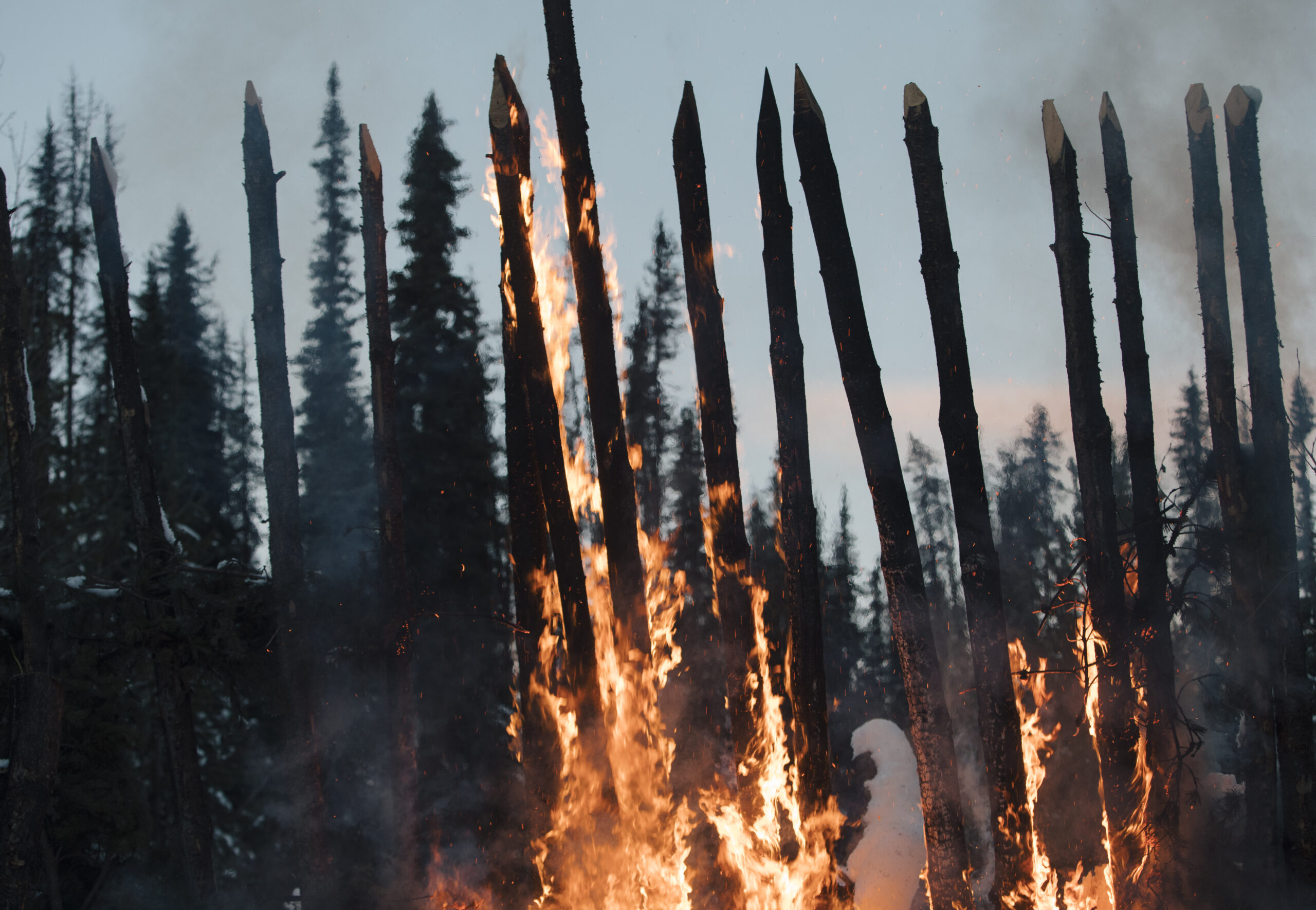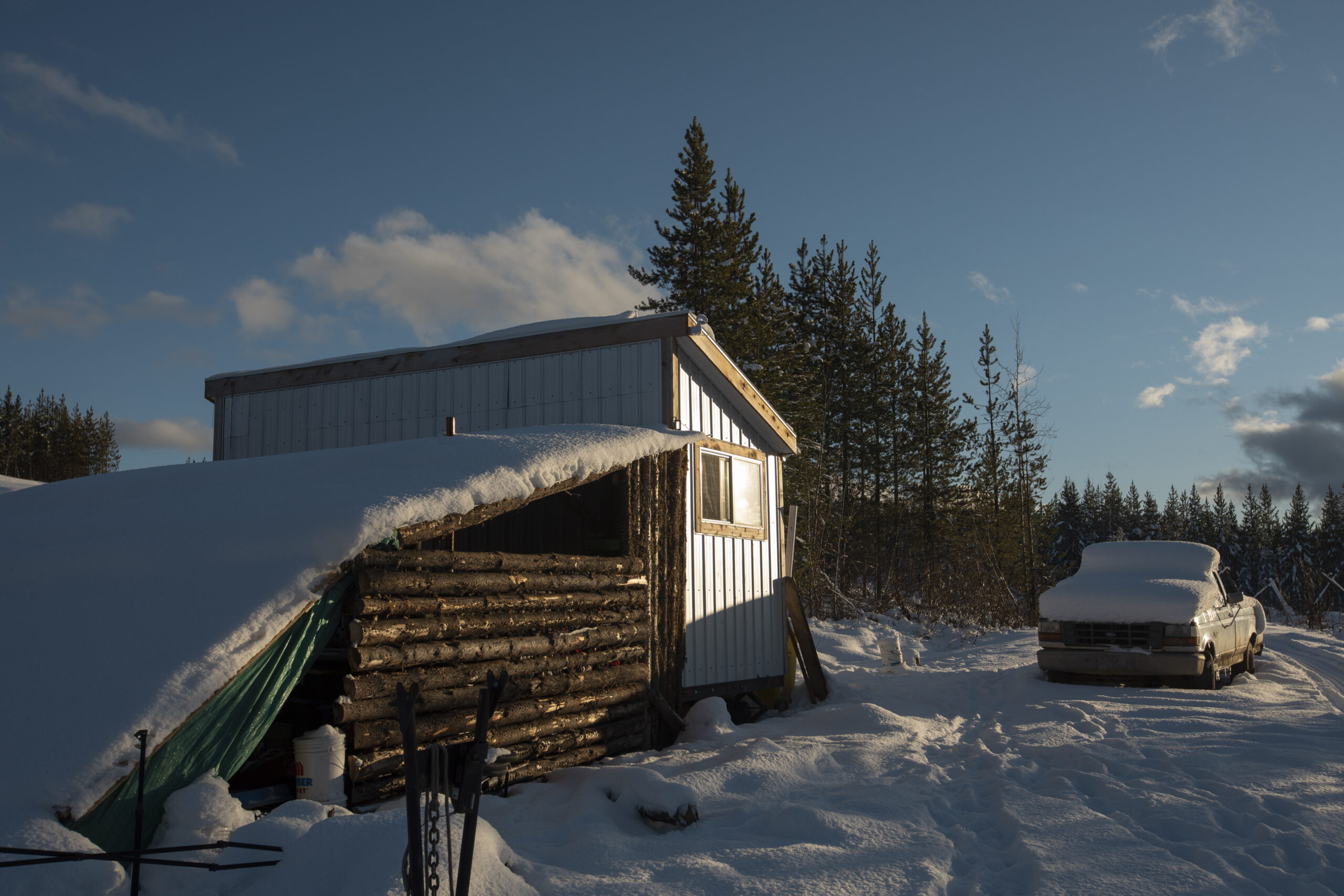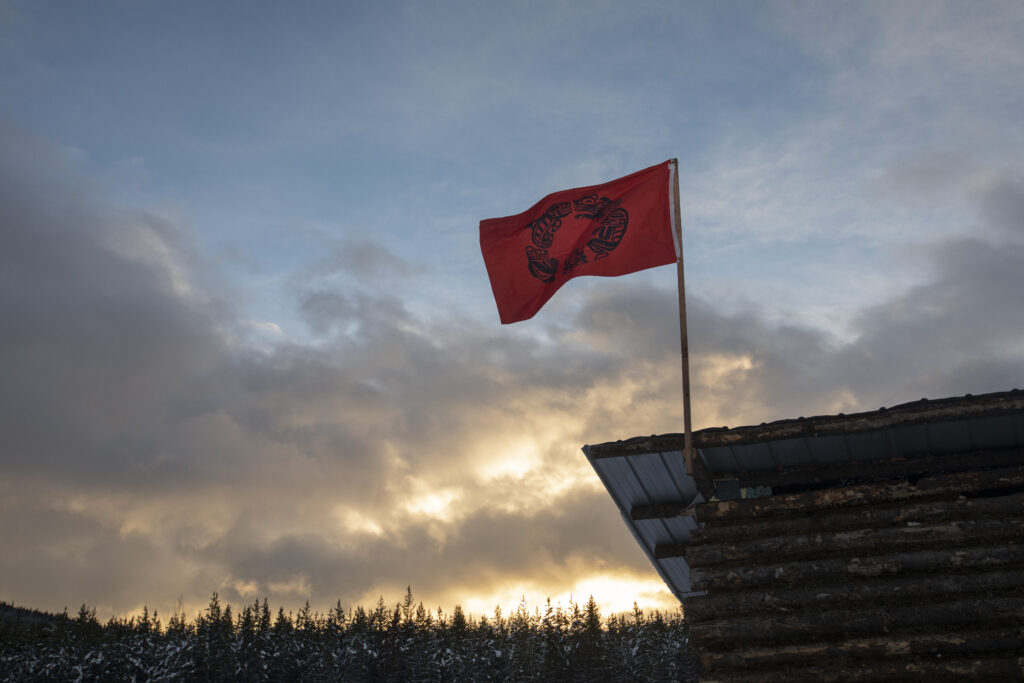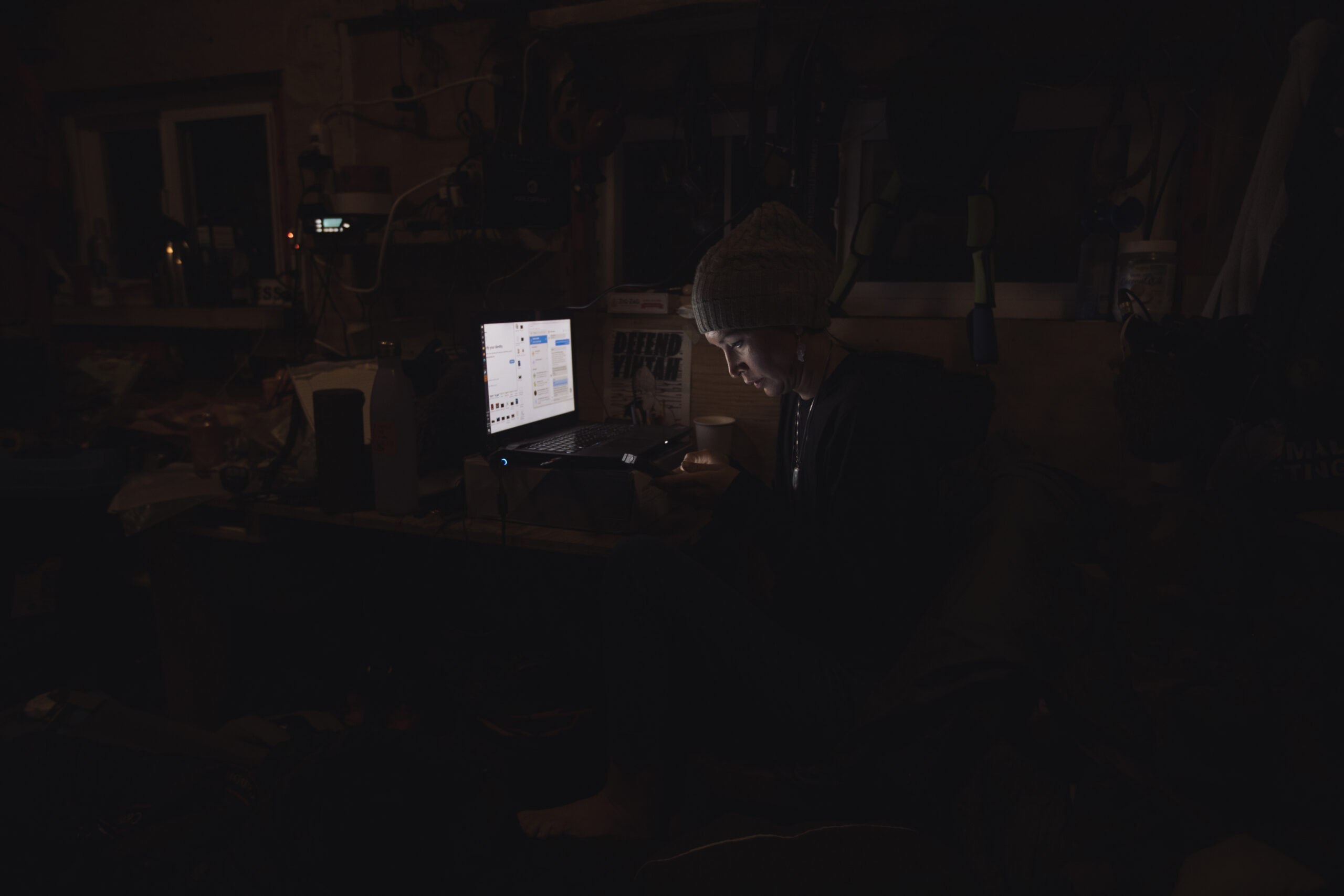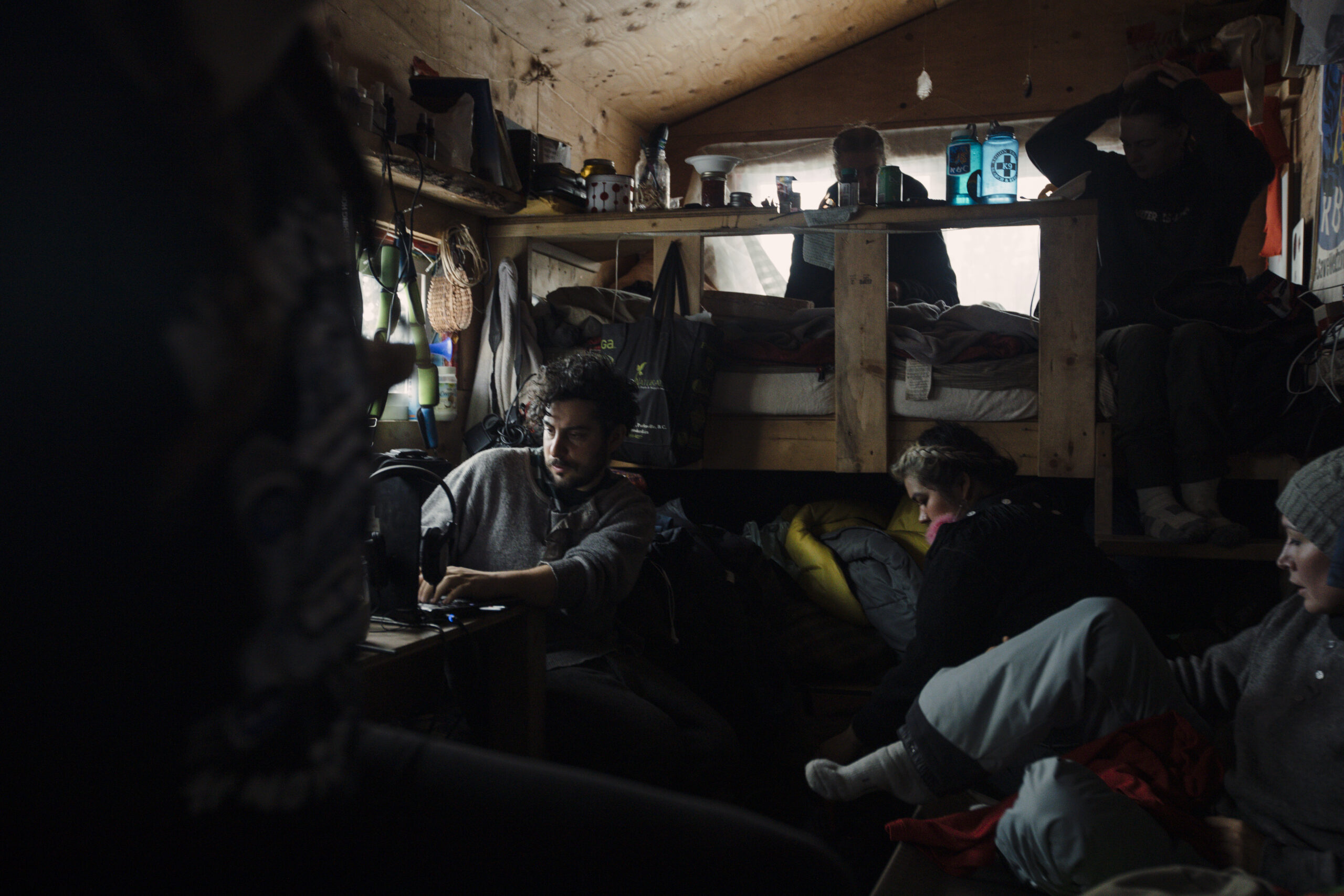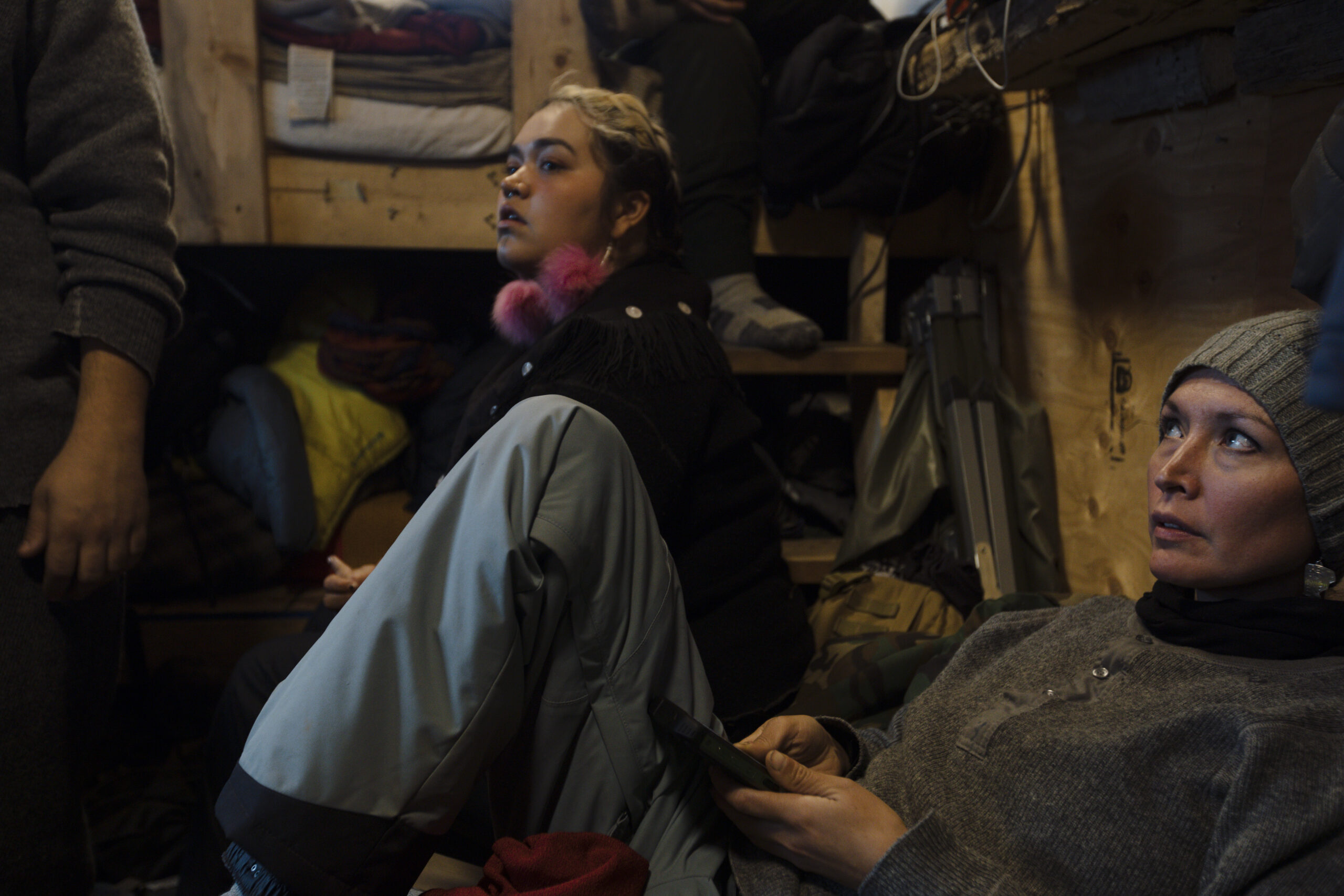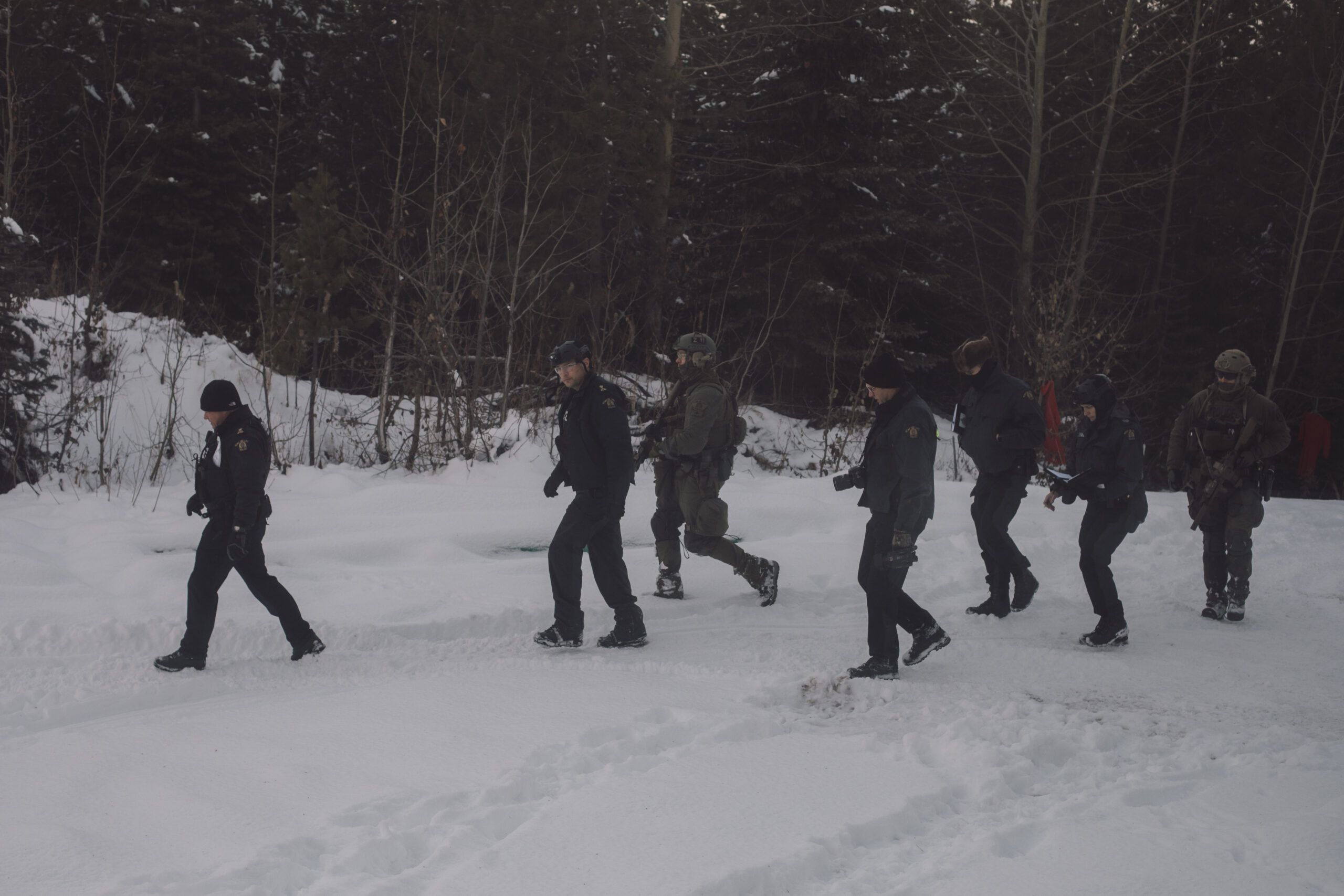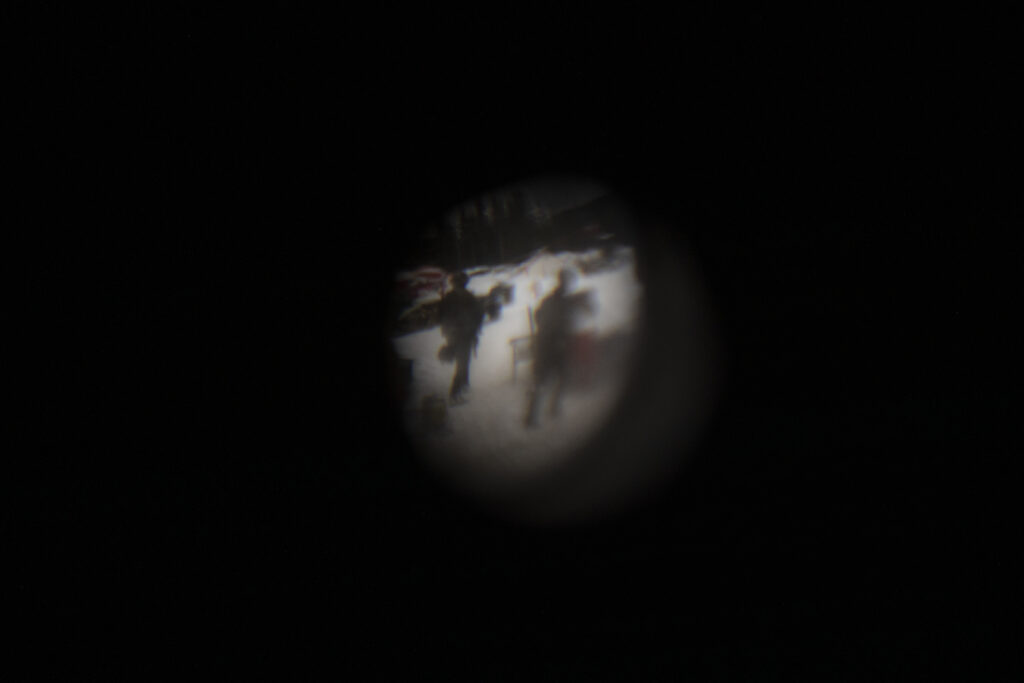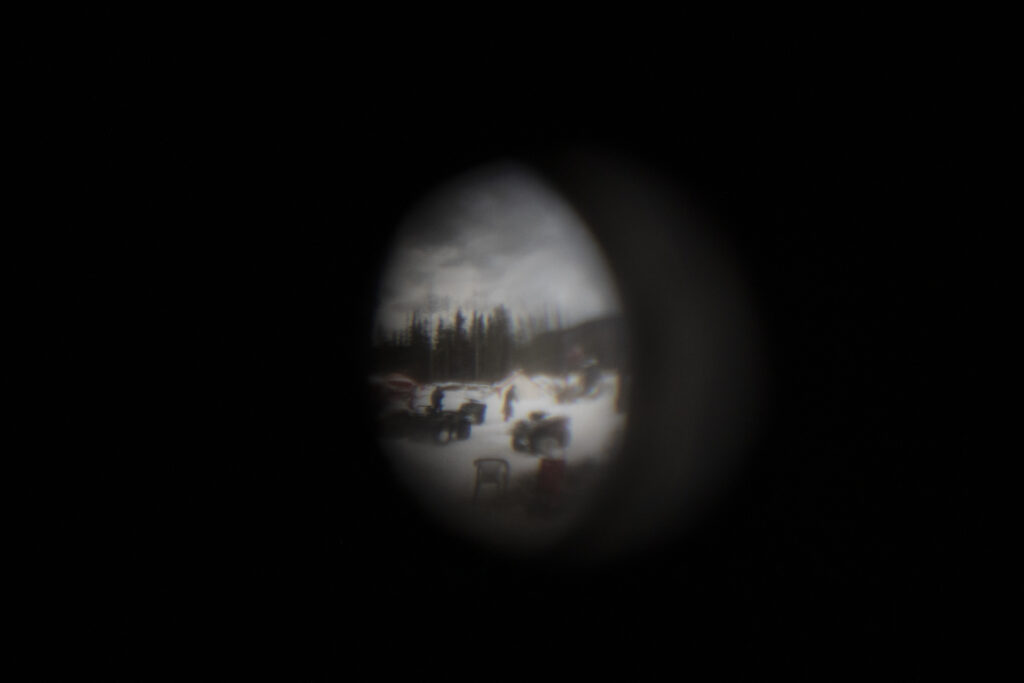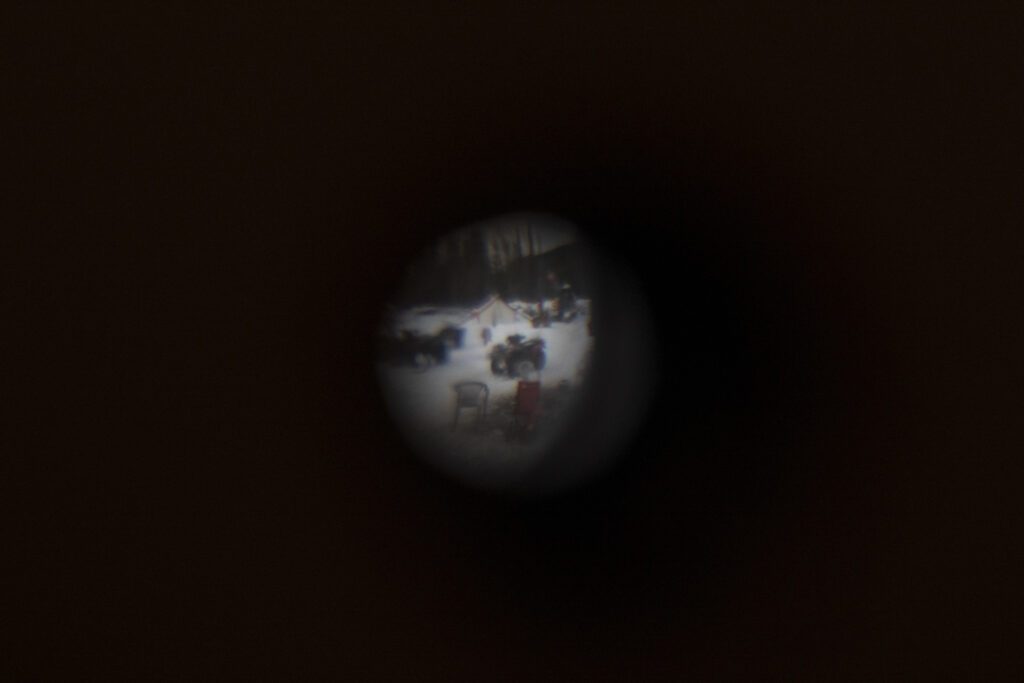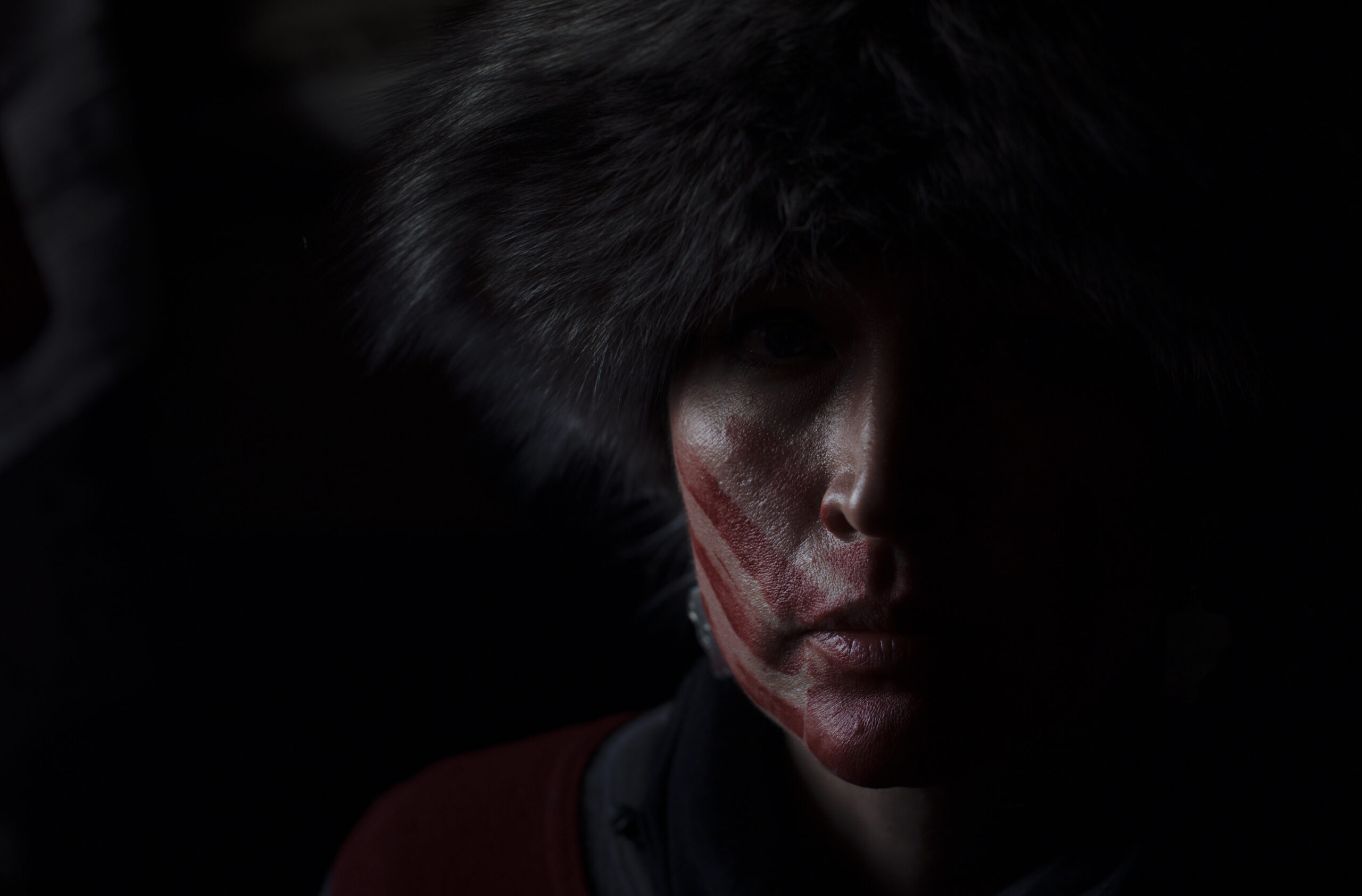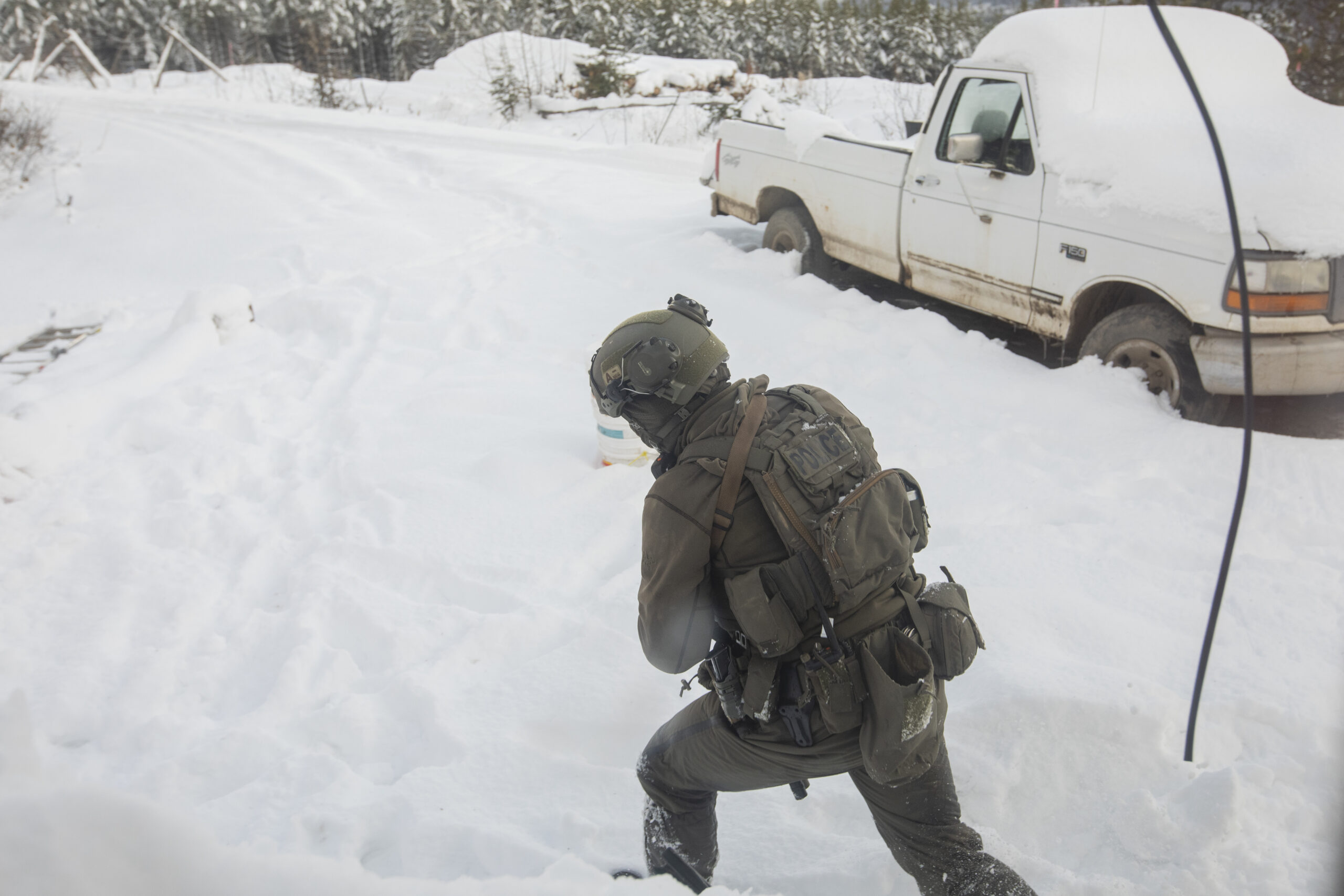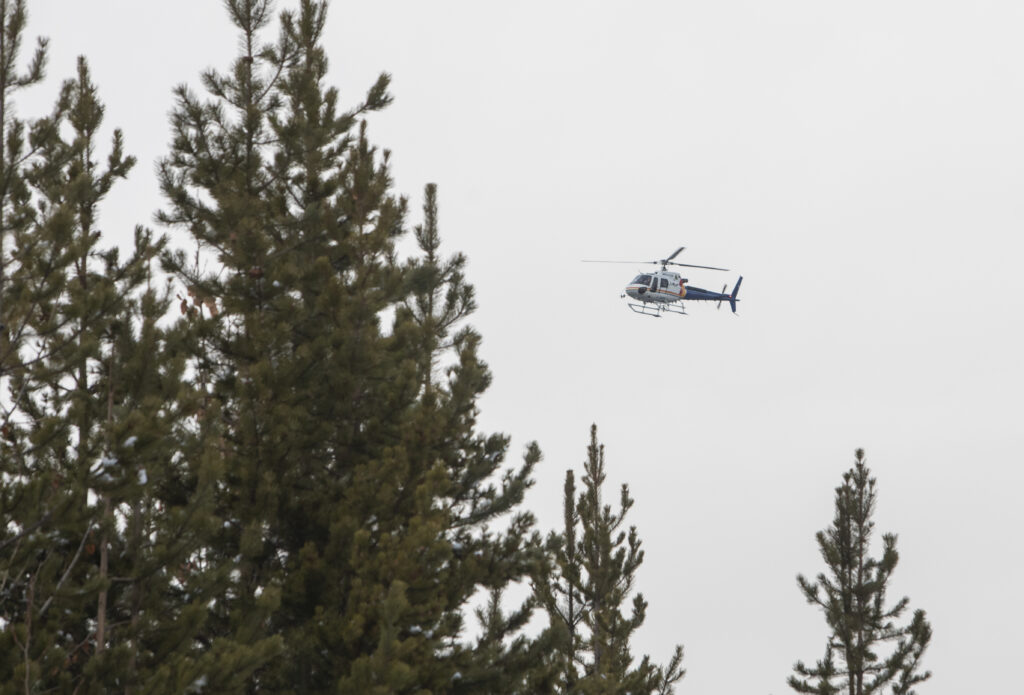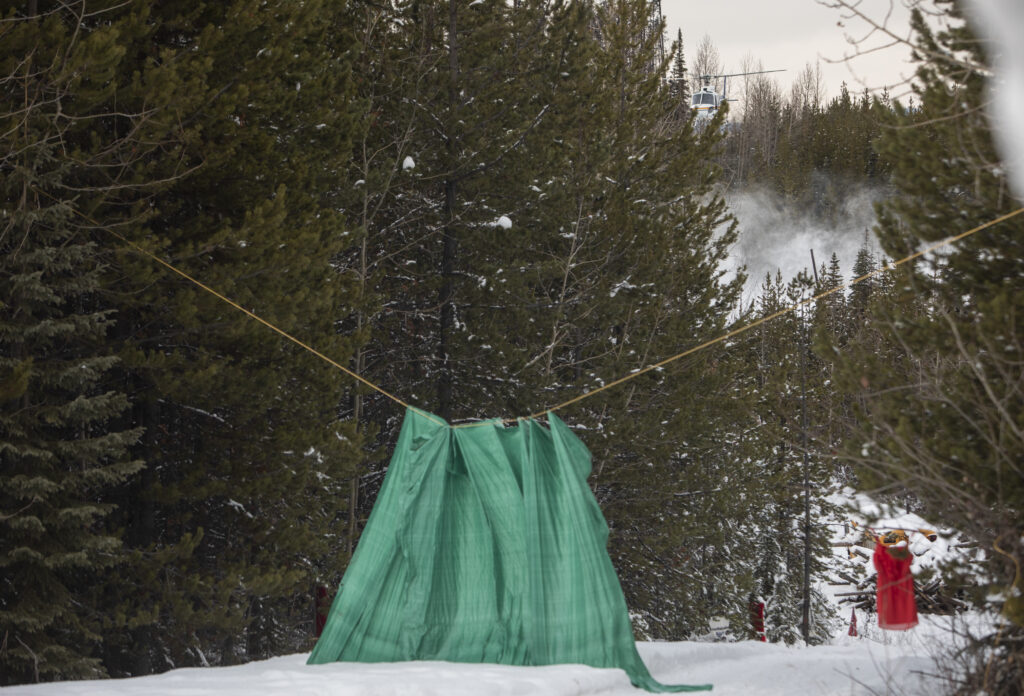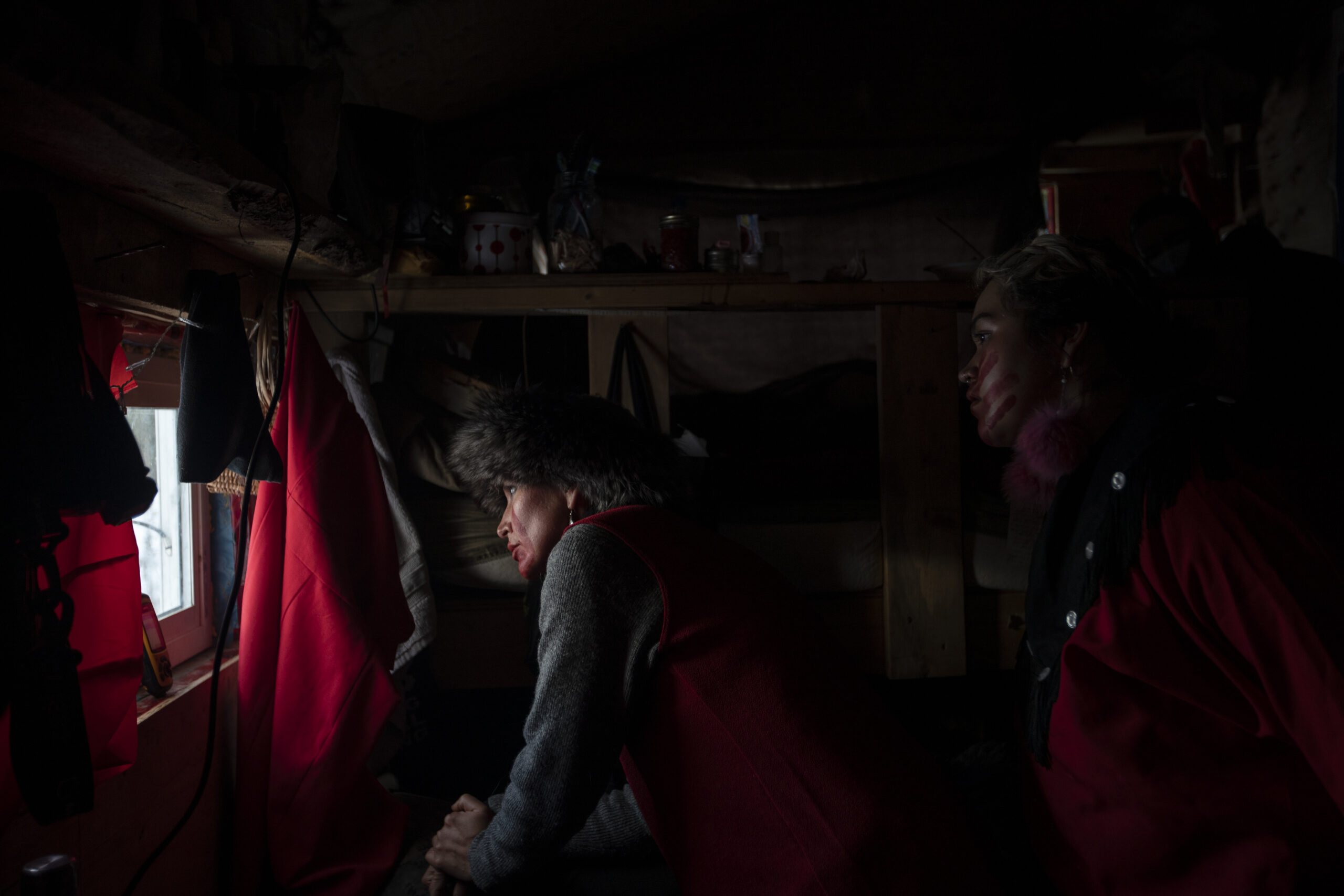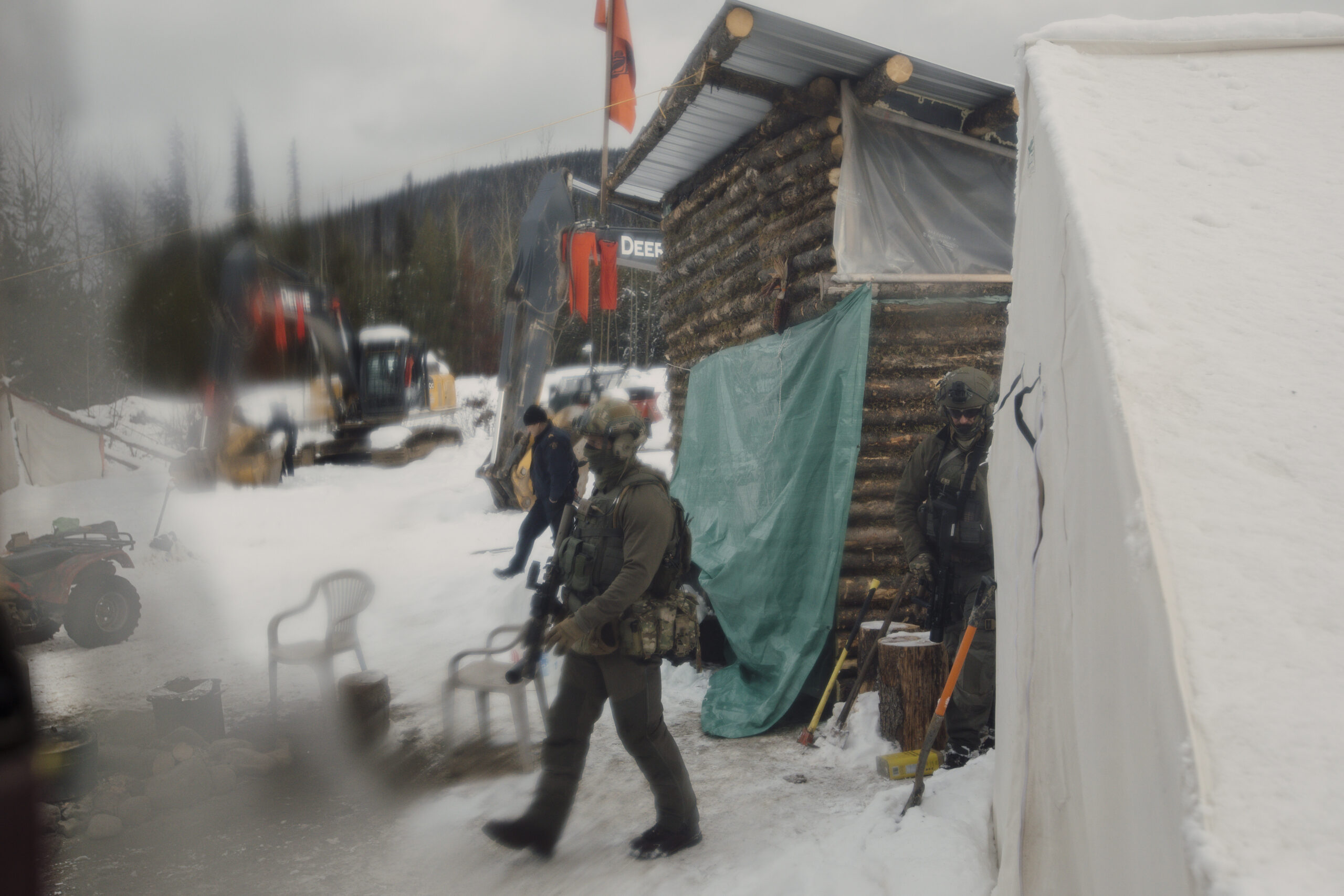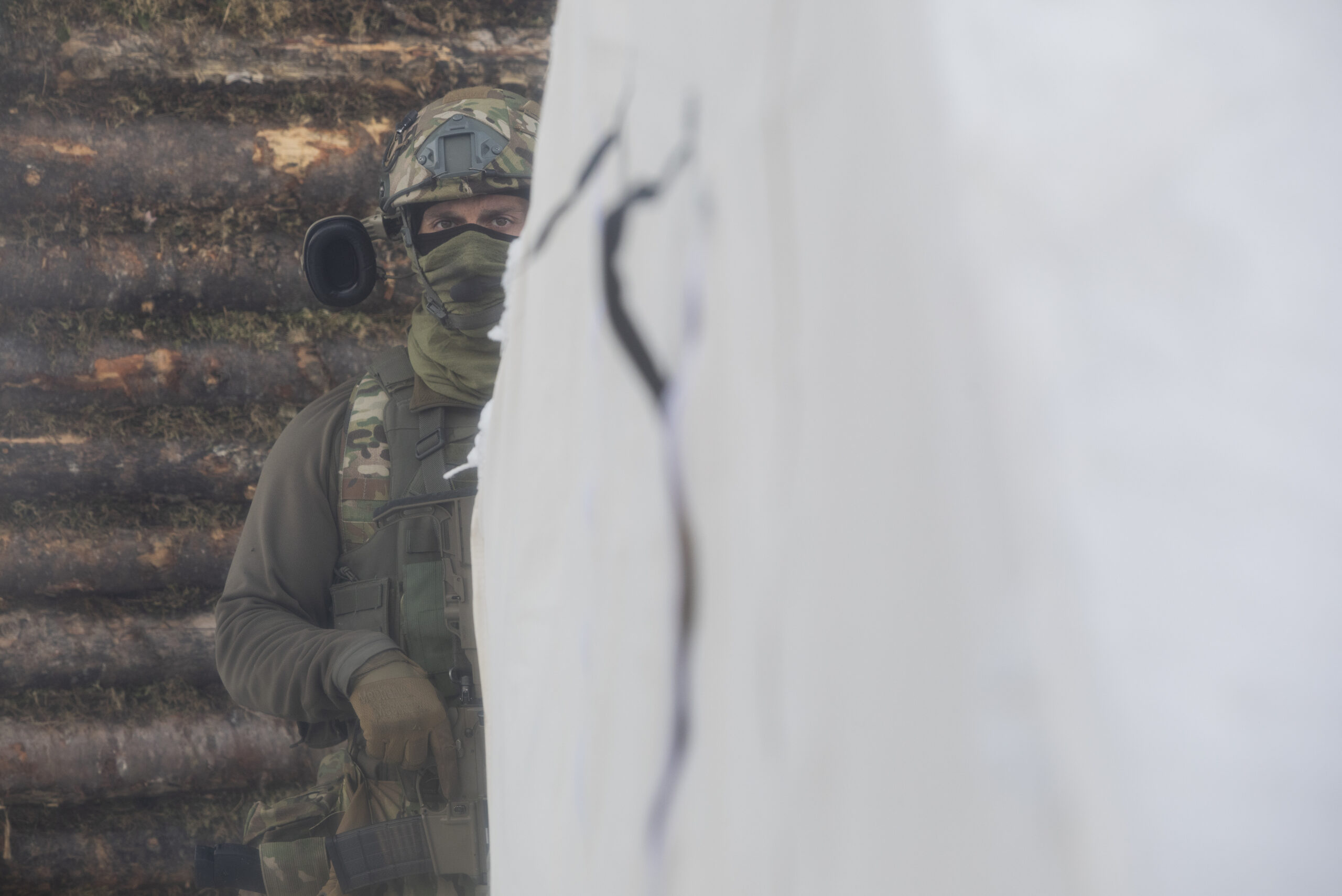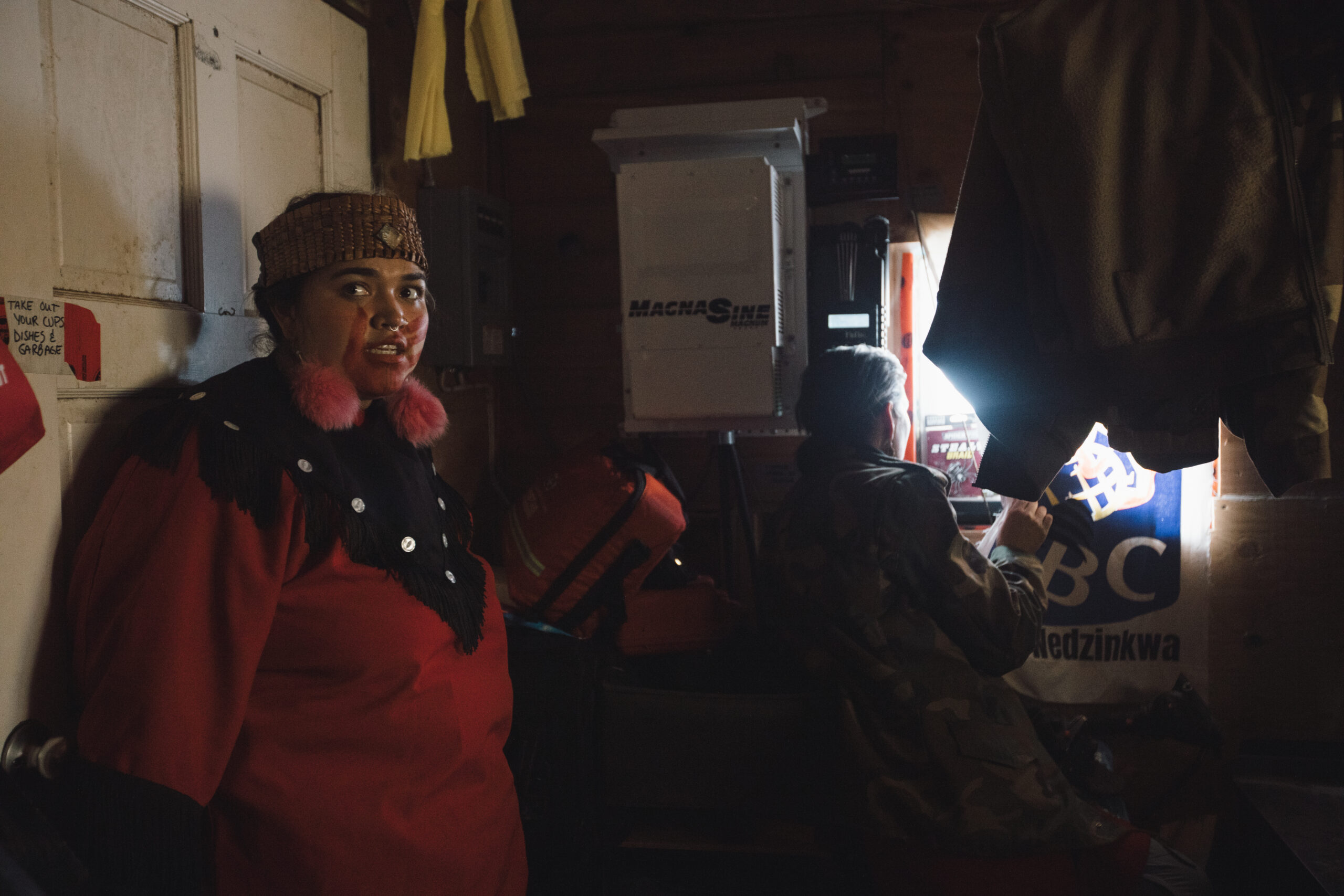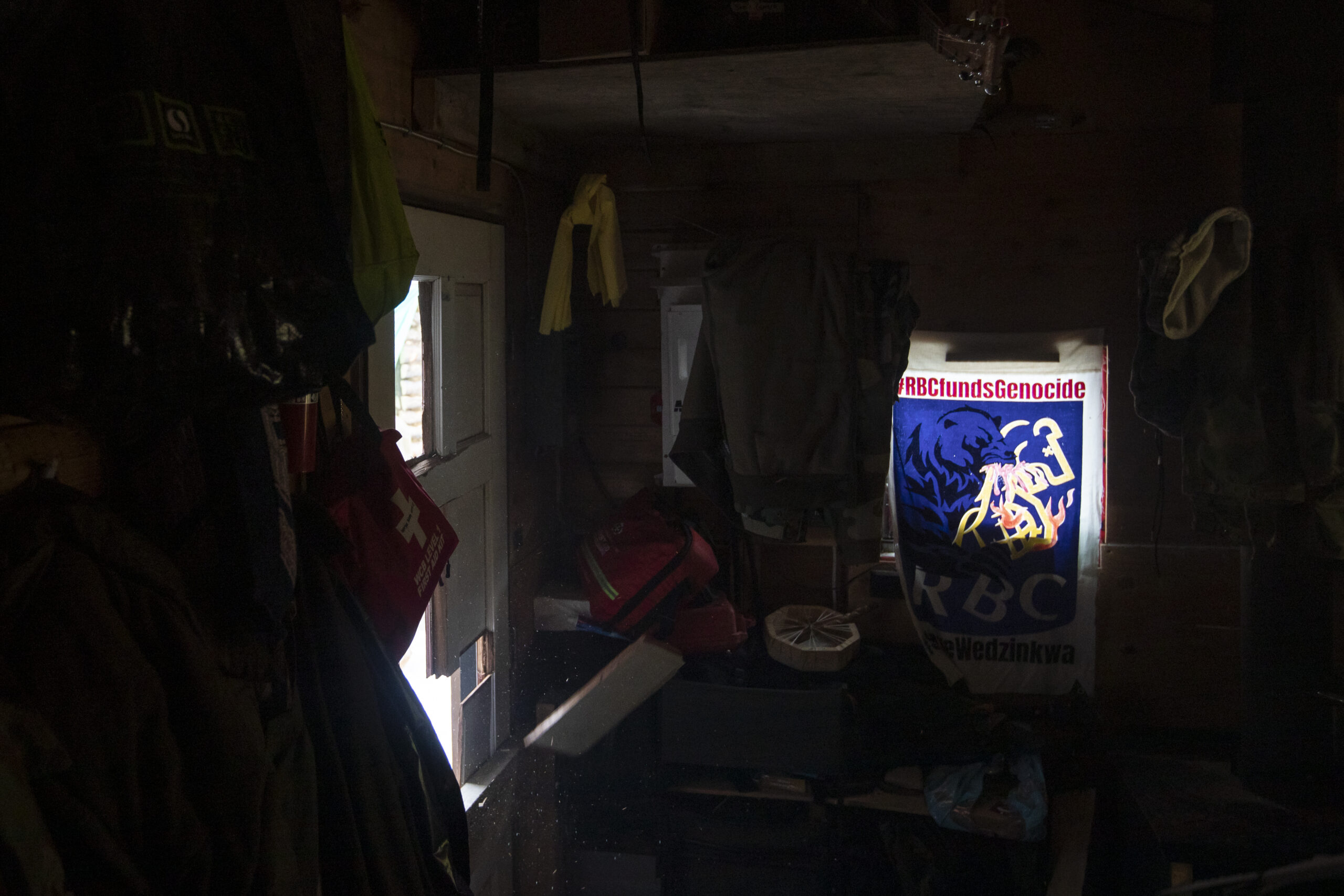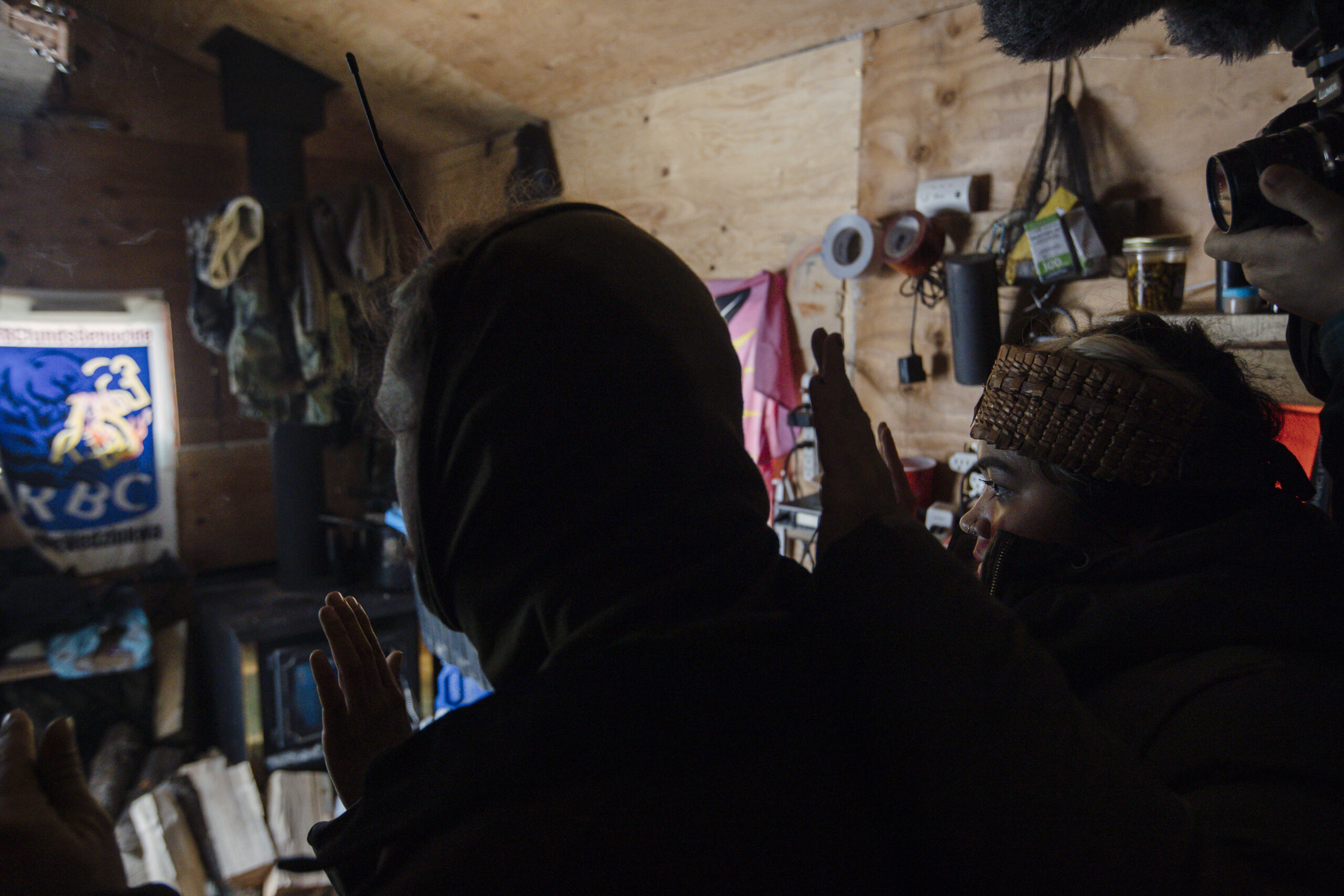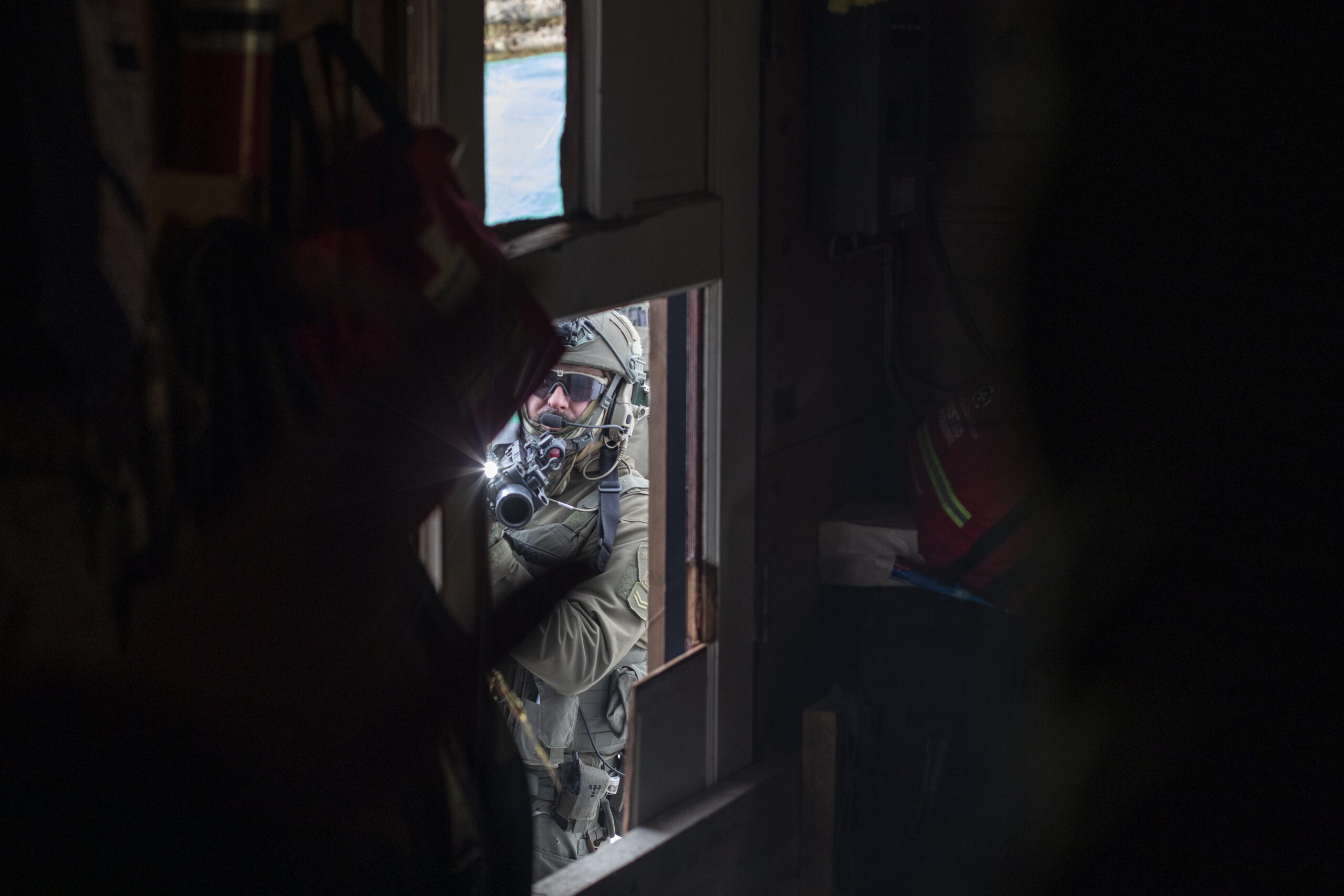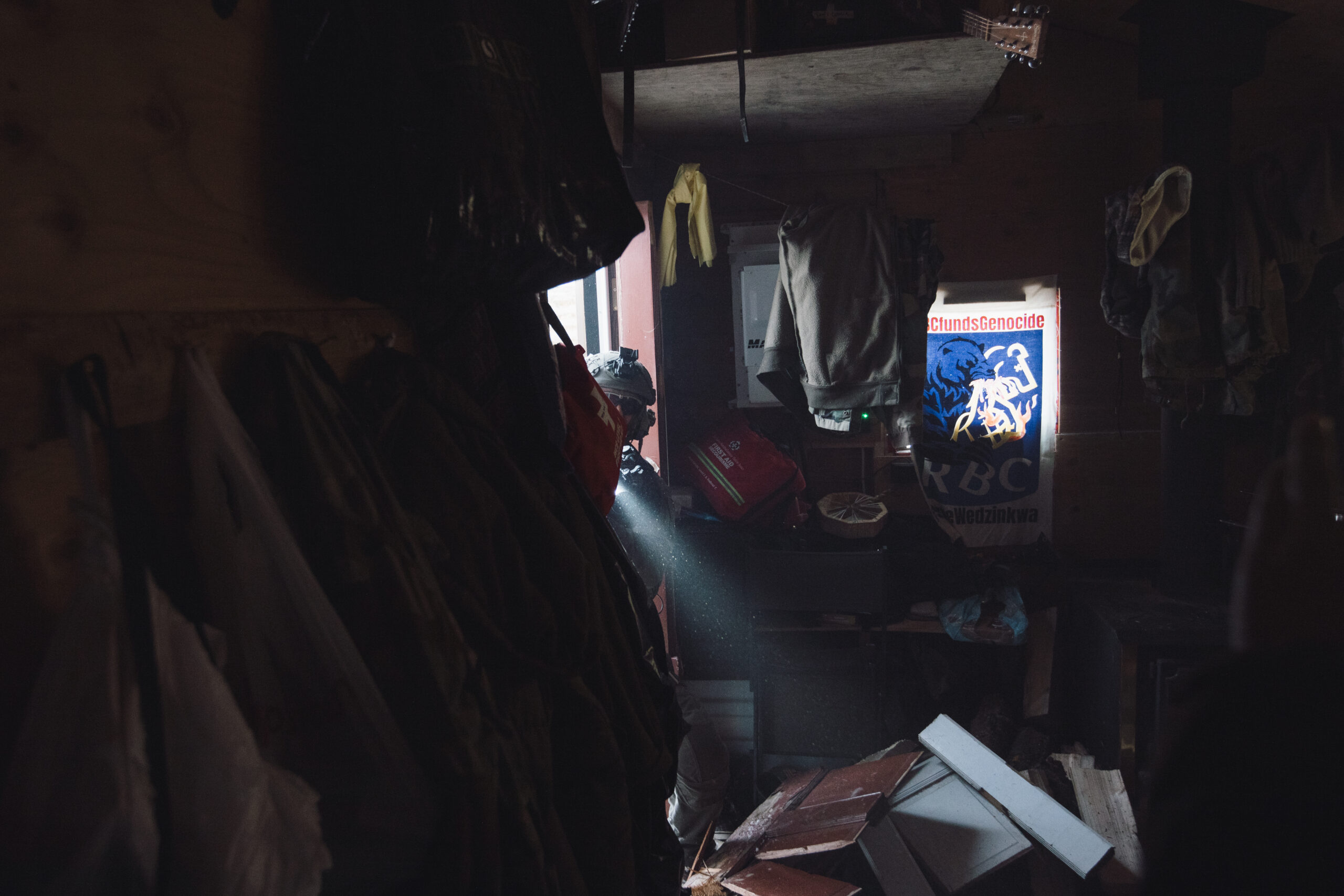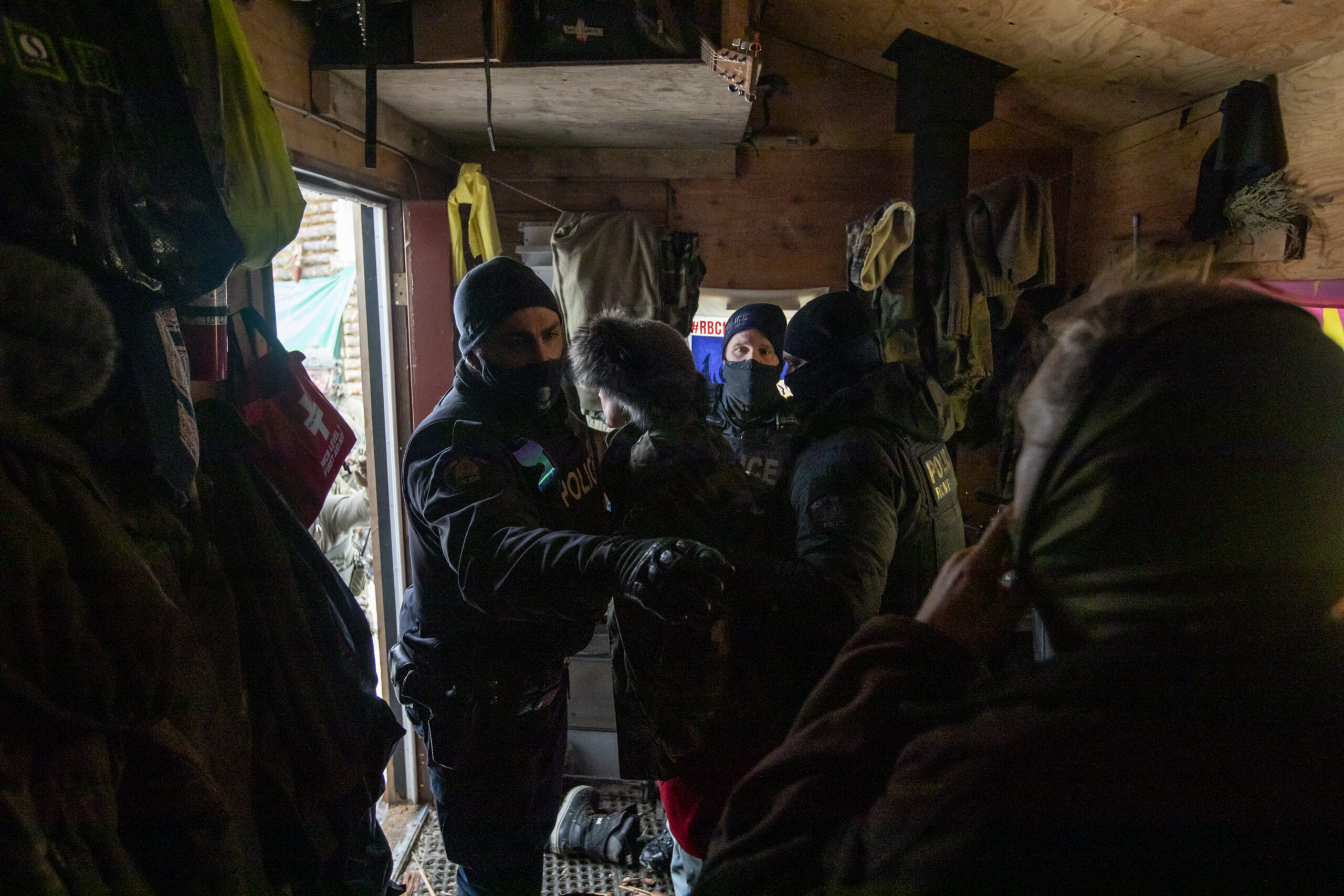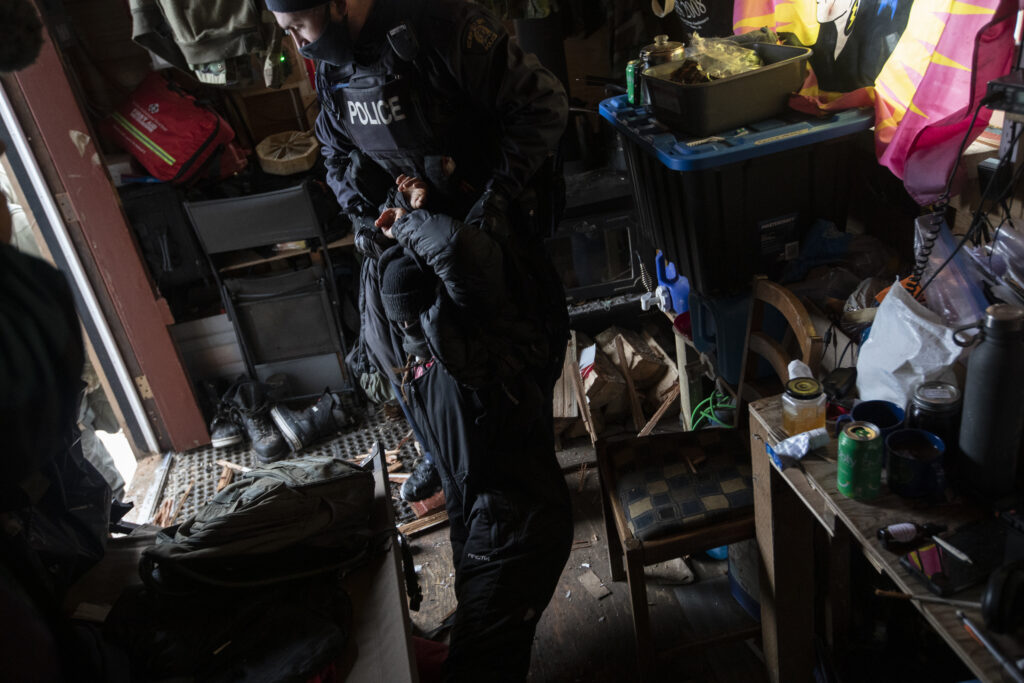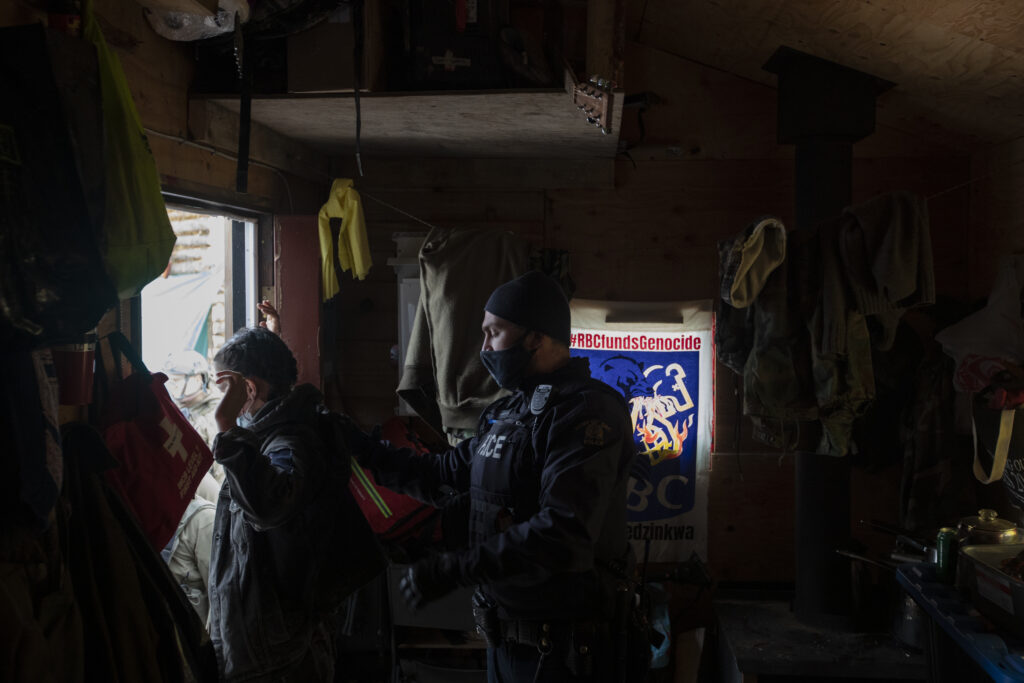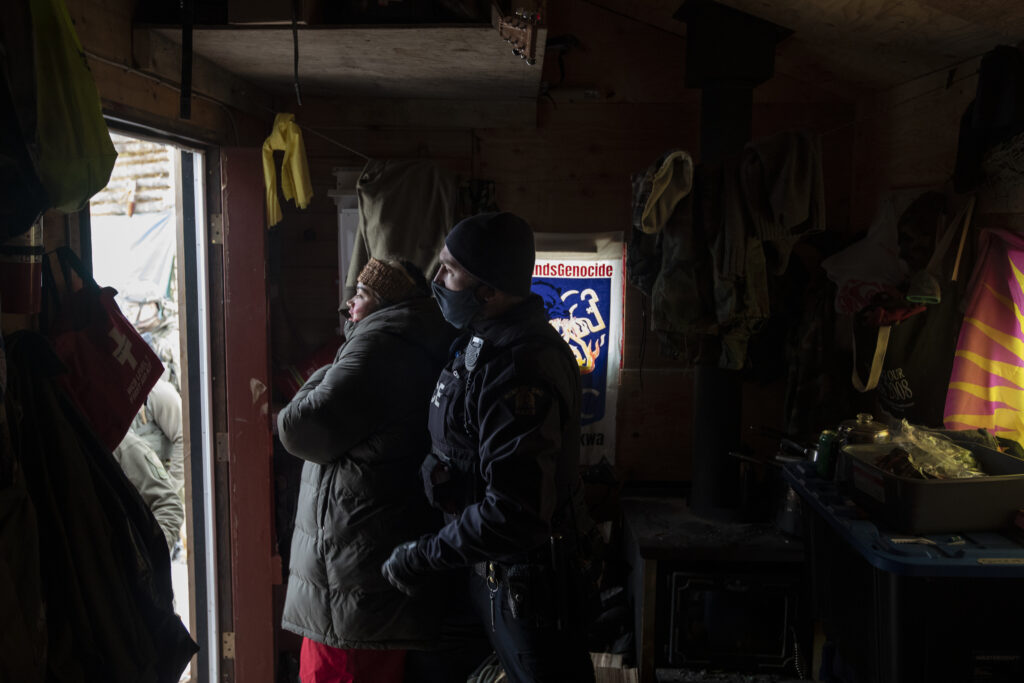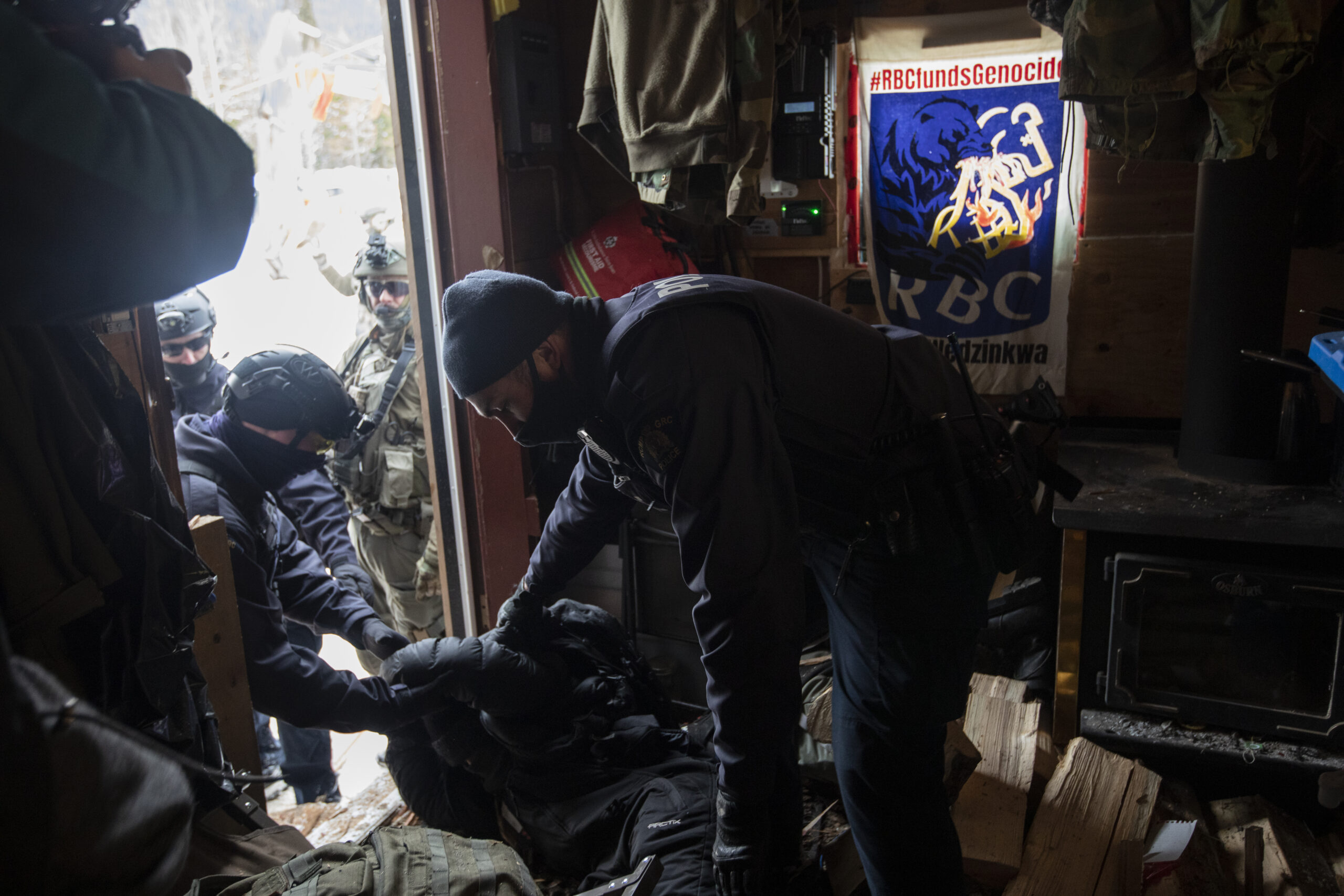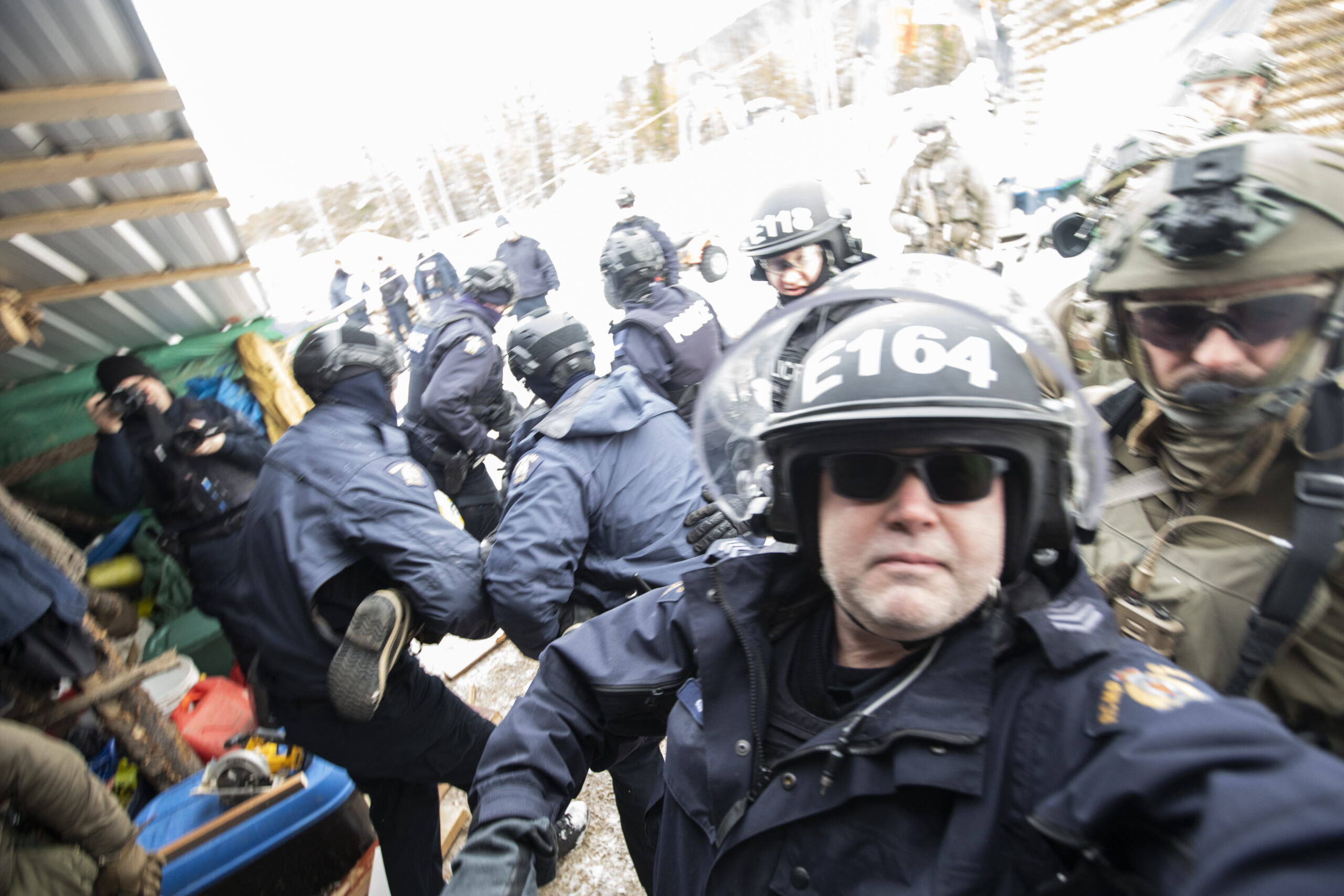
Will Canada’s next prime minister support Indigenous Rights and conservation projects?
The Conservative and Liberal parties diverge sharply on Indigenous issues. Here’s what that could mean...
In the pre-dawn morning on Friday, Nov. 19, Sleydo’ Molly Wickham, a wing chief in Cas Yikh house of the Gidimt’en clan, checks communications in a tiny house stationed next to a Coastal GasLink drill site along the Wedzin Kwa (Morice) River.
Although light hasn’t yet broken into the small wooden structure, Wickham is already performing media interviews. Her fellow supporters in the one-room structure begin to sit up as they hear Wickham tell a reporter that “several RCMP buses have been spotted coming up the hill.”
By afternoon an RCMP tactical team and specially trained officers with the Community-Industry Response Group is advancing on the small structure, with snipers and canine units at the ready. Shaylynn Sampson, a Gitxsan supporter, has her ear to the door, listening, when the action comes. She leaps back moments before an axe smashes the door, sending jagged shards of wood flying into the crowded space. A police dog barks and whines incessantly and a chainsaw snarls as RCMP continue to tear down the door.
Inside, five peaceful land defenders stand waiting for their inevitable arrest. They do not resist. They hold no weapons. An officer, armed with an assault rifle and clad in military-style gear, pushes the barrel of his gun through the broken door.
“Lower your gun!” Wickham yells. “This is sovereign Wet’suwet’en land, you guys need to leave right now. You have no authority here.” Wickham asked the RCMP if they had a warrant to enter the residence. The RCMP responded they were entering under the authority of a Coastal GasLink injunction, secured against opponents of the 670-kilometre gas pipeline in December of 2019.
The RCMP’s use of force on this day will become roundly criticized as excessive as a response to a small collective of peaceful Indigenous pipeline opponents. More than 40 media outlets and press-freedom organizations have called on Canada’s Public Safety Minister, Marco Mendicino, to investigate the RCMP’s arrest of journalists and prevent them from taking place in the future.
In total, 15 people, including myself and documentary filmmaker Michael Toledano, were arrested that day and incarcerated by the RCMP for several nights under civil contempt of court charges. More than 30 individuals were arrested throughout the week. Wet’suwet’en hereditary chiefs, who have staunchly opposed the construction of pipelines across their unceded territory in northern B.C., issued an eviction order against the company on Jan. 4, 2020, but work on the pipeline is ongoing.
Upon the arrests of media, RCMP officers confiscated recording devices, so the public has been unable to see documentary photos and footage of Friday’s arrest until recently.
